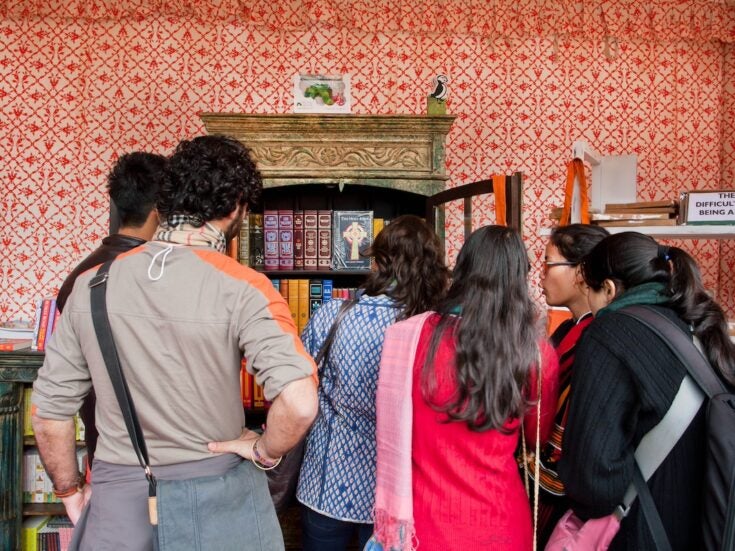

Victor Victorians
Pugin, Dickens and Lear — each in his 200th year — with their tireless work ethic show us all up as pathetic, and that’s why we hold them so dear, says Clive Aslet
WHAT A YEAR. The Jubilee, the Olympics and, in Britain, at least three good bicentenaries. The year 1812 not only inspired a decent overture in Russia but also saw the birth of three great Englishmen — a troika of Victorian geniuses who put Britain’s Got Talent in the shade.
You can hardly have missed Dickens’s anniversary, although it was only when reading Claire Tomalin’s glorious new biography that I realised quite how super-extraordinary he was. We in Ramsgate have been cherishing the memory of our local hero, AWN Pugin, who, as a young man, came to the town to find an aunt to look after his infant daughter (he had been married, become a father and been widowed by the age of twenty), then settled there, glad to hate everything that it stood for. (Sham architecture, believed this champion of the Gothic Revival, was morally corrupt.)
Corfu, meanwhile, has been putting on a show for Edward Lear, that charming bachelor who is remembered for The Owl and the Pussycat rather than the not-quite-good-enough paintings he made from his restless travels. Still, he didn’t do badly. He gave us the limerick.
It’s difficult to contemplate these Immortals without awe. Their achievements depended on a rate of production that leaves 21st-century man, with his family holidays and paternity leave, open-mouthed.

One might have thought Dickens’s fingers would self-combust simply through the friction of holding his pen. Sometimes he had not one but two novels on the go, causing him to produce two monthly instalments for the magazines that serialised him. He edited magazines and newspapers, produced a cascade of articles and Christmas stories — and sired a large family: poor Kate was pregnant every year. He shouldered the burden of his wastrel father, and of numerous females whose husbands had died. He established a home for fallen women, raised money for charity by acting on the West End stage. Rather late in life, he set up another household consisting of three women, one of whom was his mistress. All the time he suffered from a pain in his side. You only have to look at his photograph to see that he wore himself out. But what a life.
Pugin was dead at 40. Yet by then had taken the fledgling Gothic Revival and made it a crusade. He made it serious. This changed the face of the English-speaking world. At home, he not only built a house, the Grange, but a church, St Augustine’s, and was planning an abbey. All this from fees earned building Roman Catholic churches and country houses for Roman Catholic gentlemen. Not that that was enough: he then told the Roman Catholics how to worship. Admittedly he had a stream of work from the Palace of Westminster, but Charles Barry was the architect there; Pugin, as designer of the Gothic details — statuary, wallpaper, inkwells — wasn’t on a percentage.
Dear old Lear worked hard in his way; he had to, since commercial success never came. He certainly never stopped travelling — without satnav or bottled water.
How did they do it? Life was constructed for it, in some ways. There was a clear division of responsibilities. Mrs Dickens and Pugin’s three wives bred; their menfolk got on with — and up to — everything else. Lear couldn’t afford to marry, and lived in clubs and other people’s houses, delighting their children. Those children, though, weren’t likely to make much of an appearance. Dickens, creator of Tiny Tim, scourge of schoolmasters who persecuted children whom their parents preferred to forget, packed some of his boys off to boarding school in Boulogne for ten months of the year.
Dickens didn’t care much for his great contemporary at Ramsgate. He may have thought Pugin was too prescriptive and apt to lecture humanity. He may also — if he had known about Pugin’s domestic arrangements — have felt shown up. Pugin’s many children romped through the house in the way Dickens’s novels appear to advocate.
Then, of course, admin was minimal. Letters came in, Pugin read them, answered and tossed the originals on the fire. No filing, you see. Dickens didn’t have an office. A lesson here? There could be another one. By today’s standards, Dickens, Pugin and Lear were uneducated. They barely went to school, much less university.
HOW WOULD THEY have fared in the 21st century? The world has become obsessed by academic performance. Huge numbers of Chinese children wear spectacles because they aren’t exposed to enough sunlight, essential for the proper development of the eye. Their parents are keeping them inside, over their books.
Britain used to be relaxed about education, preferring youngsters to build character through riding ponies and climbing trees. Now we are submitting to something akin to the Examination Hell (they have a word for it) that characterises the Japanese system. Will all this cramming of young minds produce a Dickens, a Pugin or a Lear? I doubt it.
[related_companies]






